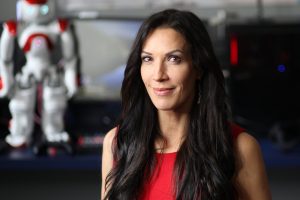Invited Speakers
November 16th

António Moreira
José António Moreira has a PhD and a Master’s in Educational Sciences from the University of Coimbra. He holds a degree in Art History from the same University.
In addition, he has a Post-Doctorate in Educational and Communication Technologies, also from the University of Coimbra and a post-graduate degree in Multimedia from the Faculty of Engineering of the University of Porto, as well as a Film Directing Course.
He is Associate Professor with Aggregation at the Department of Education and Distance Learning and Coordinator of the Development Unit of Local Learning Centers at Universidade Aberta (UAb). Researcher and Coordinator of the Center for Higher Education Pedagogy Studies at the Center for Interdisciplinary Studies (CEIS20) at the University of Coimbra and Foreign Coordinator of the Research Group on Digital Education at the University of Vale do Rio dos Sinos (GPe-dU – UNISINOS/ CAPES -CNPq), Brazil.
Collaborating Professor of the Graduate Programs in Education, Contemporaneity, Management and Technologies Applied to Education at the State University of Bahia (UNEB) and Guest Professor of the Specialization Course in Education and Technologies at the Federal University of São Carlos (UFSCar), Brazil .
Since 2020, he has been coordinator of the Digital Teaching Course for Higher Education Teachers at Universidade Aberta.
He currently coordinates the Project “Digital Education in Prisons in Portugal (UAb) and is a Foreign Researcher Responsible for the Institutional Internationalization Program CAPES/PRINT: “Digital Transformation and Humanities: Education, Communication and Technologies” (UNISINOS/UAb).
THE EMERGING PARADIGM OF NETWORKED DIGITAL EDUCATION. REQUIRED SKILLS AND TRAINING.
Presentation Summary:
The evolution of technologies and communication networks led to the emergence of a reticular society marked by sharp changes in the economy and in the labor market, driving the birth of new paradigms, models, educational communication processes and new teaching and learning scenarios. Taking this context into account, the objective of this communication is to present the proposition of a paradigm that is defined and built, also in virtual spaces, in networks, and that needs “competent” human actors who understand how to build a quality education in these emerging scenarios.
November 17th

Helen Crompton
Dr. Helen Crompton is the Executive Director of the Research Institute for Digital Innovation in Learning (RIDIL) at ODUGlobal and a Professor of Instructional Technology, at Old Dominion University (ODU). She is also the Director of the Virtual Reality Lab at ODU. She draws from 30 years in education and a Ph.D. in educational technology and mathematics education from the University of North Carolina at Chapel Hill. Crompton is on Stanford’s list of the top 2% of scientists in the world and she has received numerous awards in the USA and her home country England for her work in technology integration, including the SCHEV award for the Outstanding Professor of Virginia. She is a consultant for various governments and bilateral and multilateral organizations, such as the United Nations and the World Bank on educational technology topics. She also consults for organizations, such as the International Society for Technology in Education (ISTE). She is listed in Stanford University’s list of the top 2% of scientists in the world and has published over 150 articles on technology integration.
Presentation Summary:
While Artificial Intelligence (AI) has been around for a few decades, it has recently made powerful advances that have changed the educational landscape. Generative AI programs, such as ChatGPT, have caused educators to question how activities are designed and how we assess students’ knowledge. While there are limitations to these AI programs, the potential abounds in providing educators support with teaching, including help with writing lesson plans, assessments, summaries, and teaching ideas, and students support with learning, such as personalized tutoring, exam preparation, and study strategies. This session will provide you with what you need to know to have students use AI for positive and provides concrete strategies to amplify teaching and learning with these tools.